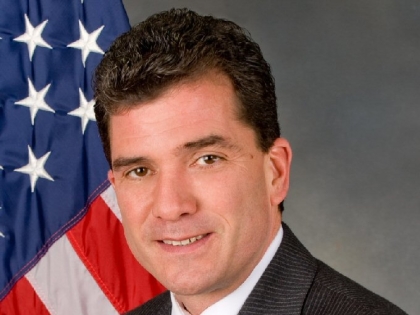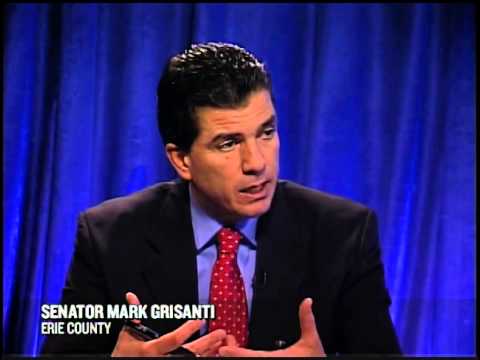
TONAWANDA NEWS: Tonawanda GOP leaders call for Medicaid fraud technology

City of Tonawanda Mayor Ron Pilozzi and Erie County Legislator Kevin Hardwick joined with state Sen. Mark Grisanti to publicly support an anti-fraud Medicaid bill at the Edward A. Rath County Office Building on Monday. The bill aims to save millions of dollars in Medicaid funds, but has repeatedly died in the State Assembly.
The bill, co-sponsored by Grisanti, would create a Medicaid identification and anti-fraud biometric technology program that would measure human body characteristics, like fingerprints, DNA, eye retinas, voice patterns and hand movements. The technologies would be used in clinics, hospitals and pharmacies to verify a patient’s identity prior to the state paying for the services.
“It is extremely important in light of our present fiscal situation that every effort is made to safeguard the integrity of the Medicaid program,” Grisanti said. “This Medicaid identification and anti-fraud biometric technology program will not only protect those who are legitimately eligible for Medicaid benefits but it will also use all modern tools available to stop fraud at the point of service.”
Hardwick said Medicaid is one of the biggest ticket items in the county — making it an important issue locally.
“Just for the local share, we pay $210 million in payments to providers,” Hardwick said. “We don’t begrudge helping people out in a time of need, but for us to pay millions of dollars in money for fraud, it just rubs a lot of people, including me, the wrong way. So when Grisanti talked about the bill, I was all for it.”
According to Grisanti, $54 million is spent on welfare statewide every year, and 10 percent of that figure — or more than $5 million — is attributed to Medicaid fraud.
Hardwick said he has recently began an attempt to combat fraud and has created some new positions about a month ago to take on the issue. Pilozzi also has some ideas for the future.
“The next step, I think, is to, at the minimum, discourage people and at the maximum to prosecute people who are responsible for the claims,” Pilozzi said.
Grisanti is also co-sponsoring the companion legislation that would give the money saved from Medicaid fraud back to the taxpayers. The bill reinstates the STAR rebate program to lower the amount of money middle class and senior citizen homeowners pay for local school taxes. The program uses three income brackets to disperse funds, with two subsets dividing upstate and downstate counties.
The program was discontinued in the 2009-2010 school year, when, according to Grisanti, state aid for schools rose.
“It is essential that Albany return these new found savings to the residents who pay taxes,” Grisanti said. “The Middle Class STAR rebate will ensure that money recovered from fraud goes back into people’s pockets, not a discretionary fund.”
Pilozzi said both these laws would help people that pay their taxes.
“It sounds like there was bipartisan support in the assembly, so hopefully it will be passed through both chambers and sent to the governor for his signature,” Pilozzi said. “We want to help people that need it, that’s what this is all about.”



